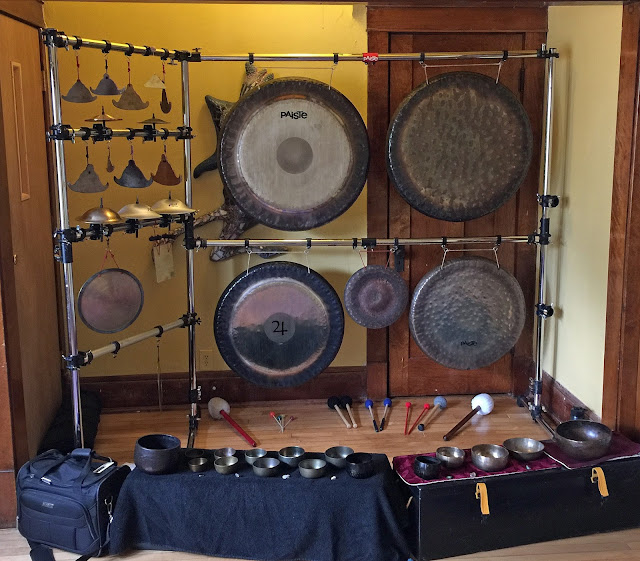How to Listen, How to Play
People come to study with me at my home studio. We get together from 2 to 8 hours at a time, going over all manner of ideas and techniques about Gongs, Bowls, and Bells. It can be rigorous. It can be insightful. It can give you enough to work on for weeks, months, years. It can set your head spinning in multiple directions.
But here's the thing, I can teach you mechanics: how to hold a mallet, how to wield it, how to strike the instrument to obtain the desired sound. I can also inform you all about the instruments themselves: where they come from. How they're made. How they're different from, or similar to, each other. We can spend all day working and going over the finer points of everything, but there's one thing I can't teach you:
I can't teach you what sounds to create, what order to create them in, whether they should be loud or quiet, high or low. I can't tell you any of that. You have to learn that on your own.
You have to listen to the wind, listen to the trees rustling, listen to the water running in the creek, listen to the traffic outside your window, or the baby crying next door. You have to listen to the world around you to gain the experience that you can use to determine how you will produce a sound and how you will use them.
~ MB
But here's the thing, I can teach you mechanics: how to hold a mallet, how to wield it, how to strike the instrument to obtain the desired sound. I can also inform you all about the instruments themselves: where they come from. How they're made. How they're different from, or similar to, each other. We can spend all day working and going over the finer points of everything, but there's one thing I can't teach you:
I can't teach you what to play.
I can't teach you what sounds to create, what order to create them in, whether they should be loud or quiet, high or low. I can't tell you any of that. You have to learn that on your own.
Art is a sort of experimental station in which one tries out living. - John Cage
You have to listen to the wind, listen to the trees rustling, listen to the water running in the creek, listen to the traffic outside your window, or the baby crying next door. You have to listen to the world around you to gain the experience that you can use to determine how you will produce a sound and how you will use them.
~ MB
Chop Wood / Carry Water / Play Gongs™




Comments
Post a Comment